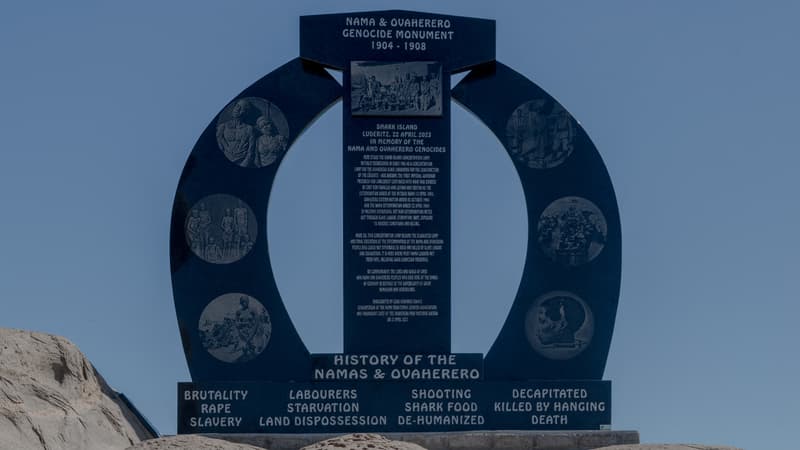Namibia will organize its first national commemoration this Wednesday, May 28 in memory of the victims of the massacres perpetrated by the German colonizers about 120 years ago, considered the first genocide of the twentieth century, the government announced.
At the beginning of the 20th century, the German troops of the colonial era massacred tens of thousands of members of the aboriginal peoples Herero and Nama, who had rebelled against the German colonial occupation between 1904 and 1908 in this country in southern Africa.
The day of the commemoration of the genocide will take place in the Jardines of Parliament, with a vigil with candles and a minute of silence, according to a government program published on Monday.
“A moment of meditation”
The day has been declared a holiday, and the members of the diplomatic corps are expected in the ceremony, where President Netumbo Nandi-Nandaitwah will give a speech.
This commemoration, called to become annual, marks “the beginning of a national healing process,” according to the Government, which also sees it as “a moment of meditation and national duel.”
On May 28, he was chosen as a commemoration date, in reference to the decision taken that day in 1907 by the German authorities to close the concentration camps, under the international pressure that denounces the violence of the detention conditions and the scope of human losses.
Germany has long refused to recognize its responsibility in these events, and it was not until 2021 that admitted that their settlers had committed a genocide.
However, it has not presented any official excuse or proposed repairs, but promised more than one billion euros in 2021 ($ 1.1 billion) in development aid for 30 years, an offer rejected by Namibia, although the negotiations continue.
Germany colonized this territory, then known as the German southwest Africa, between 1884 and 1915. The confiscation of the land, the cattle and the exploitation of women by the settlers triggered a Herero revolt in January 1904, during which more than 100 German civilians were killed in a few days. The Nama joined the uprising the following year.
The German army then responded with extreme brutality, killing around 60,000 Herero and 10,000 Nama. Hundreds of people have been beheaded and their skulls sent to Berlin for experiences that are supposed to demonstrate the racial superiority of whites over blacks.
Source: BFM TV


